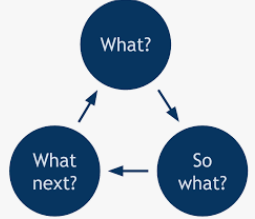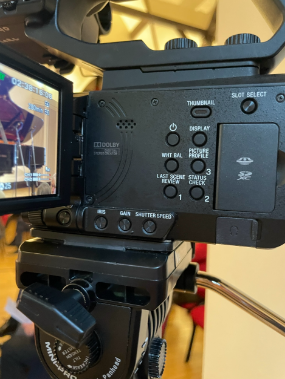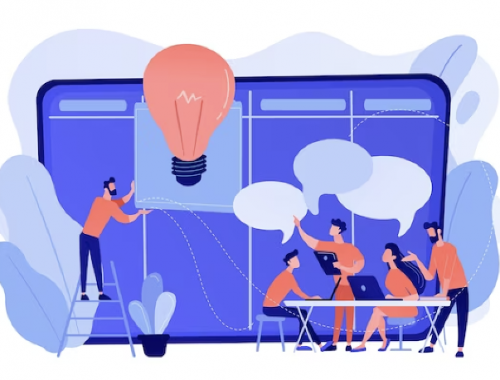Anxiety in the Workplace

Introduction
While searching for a placement I was thrilled to be given a role as a member of the SARC media team. However, I quickly realised that because I had no prior experience in media, my new role would be incredibly challenging. My complete lack of knowledge and expertise in this area initially made it difficult for me to adapt to the fast-paced environment and to work effectively with the other members of the team during my first few weeks. This also led to me dealing with lots of anxiety surrounding my placement as I felt out of place and saw myself as ‘being a burden’ on my other team mates. Using Borton’s Model I will reflect on these challenges.

Experience: What?
My first challenge was learning the technical aspects of media. I struggled to understand the language or technical terms used by the other members of my team which only resulted in me struggling even more with the equipment that we used. I felt overwhelmed and didn’t know how I was going to possibly learn all of this new information. I felt like in time my team members would resent me for not doing my part and holding them back. I almost felt like I was suffering from imposter syndrome, ‘always waiting for their inadequacy and fraudulence to come to light’ (Saymeh, 2023). However, after doing some research on new job anxiety I realised that how I was feeling was normal. I took some time to research coping strategies that I believed ‘connecting with your new colleagues will ease feelings of anxiety’ (Wool,

2022). I quickly realised that the other members of the team were willing to help me learn all the new terms and show me how to use the cameras and other equipment. They were patient and they took the time to explain things to me in a way that I could understand. No matter how many teams I may have needed to go over a new piece of information or how to properly use the equipment, they didn’t make me feel like a burden. Once I became a bit more familiar with the equipment we used, I took the initiative to research and learn on my own, which helped me to grasp the technical aspects of the job better.
Additionally, during my initial weeks with the SARC media team I found that I was constantly worried that my lack of experience would lead to mistakes and errors, which can affect the quality of work. Since the purpose of my role in the SARC media team was to assist with the live streaming of concerts I was constantly obsessing with how any mistake I made could ruin the live stream. My lack of experience in media led to a lack of confidence and hesitation in making decisions. However, through research and my own experiences I realised that my anxieties about making mistakes wasn’t as bad as I initially thought. Being so nervous led to me being more cautious and I discovered that people who dealt with workplace

anxiety were ‘more sensitive to feedback and thus more vigilant in monitoring their surroundings and themselves’ (Cheng and McCarthy 2018, 538). I was able to implement this new understanding of my workplace anxiety by asking for more feedback. Whether it was on how well I filmed a set or how I had set up the camera or even if I had taped the leads well enough, I found that hearing positive feedback or constructive criticism from my team really helped me become more confident in my role.
Reflection: So What?
From this experience I have learnt that being placed in a media team is not just about technical skills, but also about team dynamics. A successful team relies on members who can work together effectively, communicate well and support each other’s strengths and weaknesses. For me, I felt that my performance in the SARC media team greatly improved and my workplace anxiety significantly declined once I was able to build connections with my teammates because this led to me being more comfortable when asking for help or guidance and left me in a position to receive more feedback that helped me understand the work I was doing much more efficiently than had I continued to withdraw and try and figure it out on my own. As part of the media team, my work was closely tied to the work of the other team members. I needed to communicate and collaborate with them in order to create a successful and high-quality live stream. Looking back, I am happy I took the initiative to understand why I was feeling so anxious and to learn new ways to overcome these feelings. In my future endeavours I hope to be able to suggest team building exercises that may allow new teams to get to know eachother better before beginning to work together on new projects. I found that ‘team-building interventions are evidently believed to lead to a substantive increase in team performance’ (Salas et al. 1999, 310) and that taking part in such exercises early on will allow me to feel more confident in the workplace.
Outcome: Now What?
Starting a new job is always nerve-wracking, as well as exciting, and starting placement with the SARC media team was no different for me. The new environment, new people and new responsibilities were already making me feel anxious, adding my lack of experience in media to the mix almost made me want to quit before I had even begun. Through my experience of this placement I have not only learnt how to lessen my workplace anxiety through working with and forming connections with my team members but that workplace anxiety does not always have to be the worst thing that can happen to a person (even though it may feel like it). With the knowledge I have gained from this experience I am more confident in how I will react in my future endeavours.
Bibliography
Cheng, B.H. and McCarthy, J.M. (2018). Understanding the dark and bright sides of anxiety: A theory of workplace anxiety. Journal of Applied Psychology, 103(5), pp.537–560. doi:https://doi.org/10.1037/apl0000266.
(Cheng and McCarthy, 2018)
Haslam, C., Atkinson, S., Brown, S.S. and Haslam, R.A. (2005). Anxiety and depression in the workplace: Effects on the individual and organisation (a focus group investigation). Journal of Affective Disorders, 88(2), pp.209–215. doi:https://doi.org/10.1016/j.jad.2005.07.009.
Salas, E., Rozell, D., Mullen, B. and Driskell, J.E. (1999). The Effect of Team Building on Performance. Small Group Research, 30(3), pp.309–329. doi:https://doi.org/10.1177/104649649903000303.
Saymeh, A. (2023). What Is Imposter Syndrome? Learn What It Is and How to Cope. [online] www.betterup.com. Available at: https://www.betterup.com/blog/what-is-imposter-syndrome-and-how-to-avoid-it [Accessed 25 Mar. 2023].
Wool, M. (2022). New Job Anxiety: 10 Tips for Overcoming Your Nerves. [online] www.betterup.com. Available at: https://www.betterup.com/blog/new-job-anxiety [Accessed 20 Mar. 2023].
"In Theory": Not in Practice.
A Ghost In The Room
You May Also Like

From Volunteer Videographer to Lead Graphic Designer: My Reflective Journey at Larne FC
18 April 2023
I Was Just… A Voice.
7 April 2023
